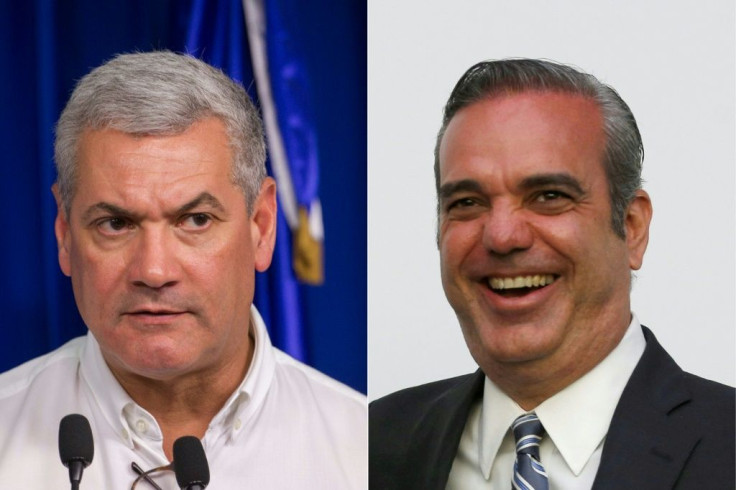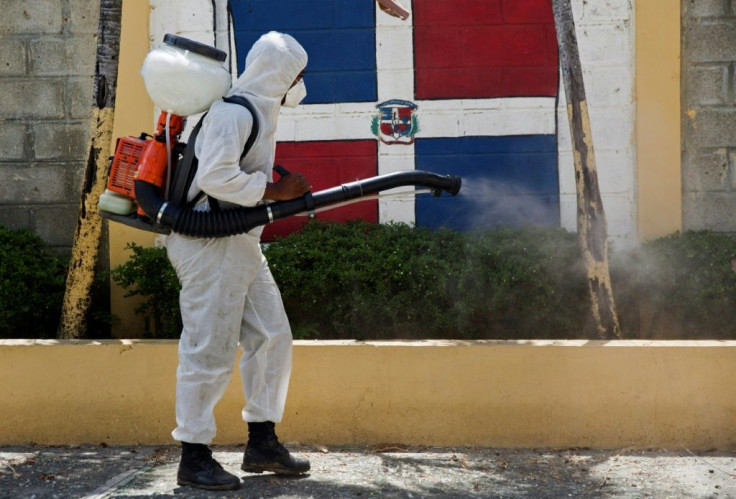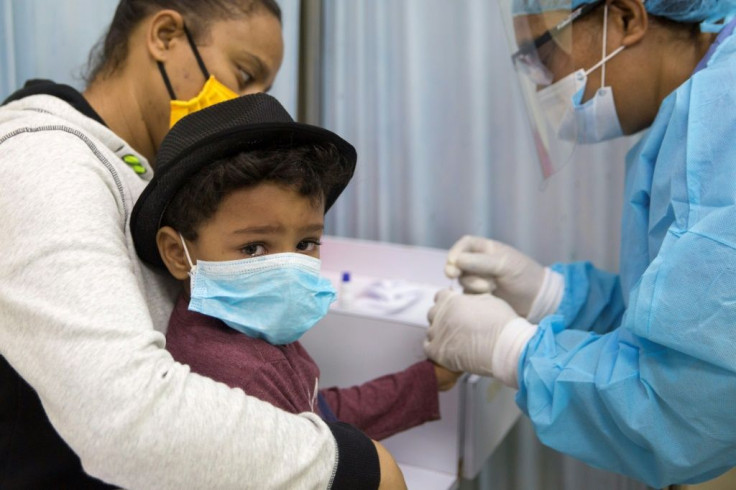Dominican Republic Voters Prepare To Defy Pandemic

Edwin Disla insists the coronavirus pandemic won't stop him from voting in upcoming presidential and legislative elections in the Dominican Republic, even if the leading candidate has tested positive for COVID-19.
"I have no doubt. I'm going to vote, I don't have any fear over it. I'll probably go and vote at dawn! I've always voted," said Disla, a 59-year-old writer, as he chatted with friends in a park named after Christopher Columbus in the historic colonial-era center of Santo Domingo.
Luis Abinader of the opposition Modern Revolutionary Party (PRM) has a commanding lead in the polls ahead of the July 5 election, despite announcing he tested positive for the virus on June 11.
Abinader is polling at 53.7 percent, according to Gallup, well ahead of ruling Dominican Liberation Party (PLD) candidate Gonzalo Castillo who has 35.5 percent.
Former president Leonel Fernandez, 66, trails in third place with 8.6 percent. Fernandez ruled for a total of three four-year terms between 1996 and 2012.
The campaign is unlike any other in the Caribbean republic's history, overshadowed by a health crisis that has hit the country's population of 10 million hard.
The Dominican Republic has registered more than 29,000 infections from the coronavirus, with nearly 700 fatalities, according to an AFP tally.
The election date has already been pushed back from May 17 and will go ahead "come what may" on July 5, said the president of the Central Electoral Board, Julio Cesar Castanos.
Not everyone shares his enthusiasm. Carlos Encarnacion, 32, isn't sure he will be ready to go out and vote come polling day.
"I usually vote. This time, it will depend on how the virus is going. My life and health come first," he told AFP.

Streets are festooned with traditional election posters with candidates' faces, but the campaign is bereft of noisy, colorful rallies -- banned by President Danilo Medina to prevent the spread of the disease.
Santo Domingo's colonial architecture would normally draw flocks of tourists at this time of year, but tourism -- which represents 8.0 percent of GDP -- has all but evaporated due to the pandemic.
Ruth Santos, a journalism student, said she had a duty to go out and vote, despite the threat of the virus.

"We have to learn to live with the COVID as long as it's here," said Santos, 27.
Not doing so would risk more of the same, she said, referring to massive protests in recent years over the involvement of local politicians in a wide-ranging scandal involving Brazilian construction giant Odebrecht.
The Dominican Republic ranks 137th out of 180 countries in the Transparency International corruption index.
"We are tired of corruption," Santos said.
Evangelista Leocadio, a 44-year-old security guard, said he is not so much worried by the coronavirus as he is by the lack of suitable candidates for president.
"I'm undecided," he said, with his mask on.
The pandemic has changed the dynamics of the electoral campaign.
Unable to hold rallies, the parties have instead focused their strategy on small meetings with limited access to respect social distancing measures.
Abinader, a 52-year old businessman, had to halt his campaign once he tested positive for the virus and his running mate Raquel Pena took over.
Pro-government candidate Castillo has toured the country with his campaign team, which includes officials from the Medina government, but has had to keep his contacts with supporters to a minimum.
The electoral authority has urged voters to wear masks.
"Put your mask on and get out and vote," says its slogan.
A new president and Congress is expected to be inaugurated by August 16.
© Copyright AFP {{Year}}. All rights reserved.





















